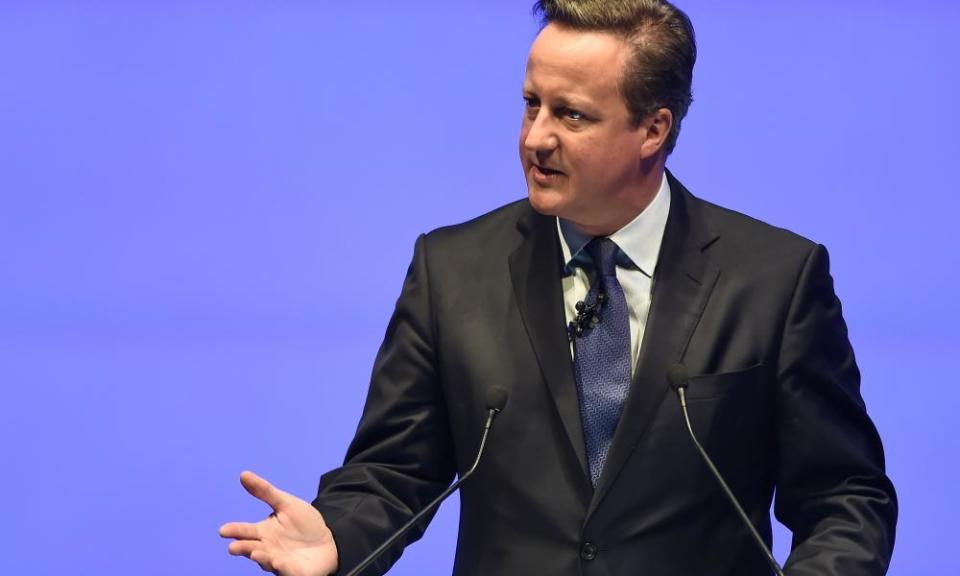David Cameron: Brexit vote ended a 'poisoning' of UK politics

David Cameron regrets Brexit cut short his premiership but said the referendum ended a “poisoning” of British politics and the upcoming election could hand Theresa May a larger majority to push through an EU divorce.
“Obviously I regret the personal consequences for me. I loved being prime minister. I thought I was doing a reasonable job,” Cameron said at a tourism conference in Bangkok on Wednesday. “But I think it was the right thing. The lack of a referendum was poisoning British politics and so I put that right.”
The former Conservative party leader has kept a relatively low profile since resigning last June the morning after losing the referendum in which he fought to remain part of the European Union.
In comments at the global summit for the World Travel and Tourism Council, Cameron said anti-EU sentiment in Britain had been a “legitimate cause of populist concern ... And yet in spite of the fact that the British people were occasionally offered a referendum by their leaders, most famously by Tony Blair, they never got a referendum,” he added.
“If you want to address the causes of populism, it was necessary, in my view, to have a referendum.”
Cameron had been under pressure for years from Eurosceptic MPs in his own party. In the month after the vote to leave the EU, the number of hate crimes jumped by 41%, according to Home Office statistics. Critics said parts of the leave campaign focused on racist tropes and the result had been exploited by people who felt more confident in expressing xenophobic views.
Cameron praised his own party, saying that because Conservatives had “accepted the referendum result and got on with the process and responsibly delivering it, it is probably the most healthy mainstream political party anywhere in western Europe”.
He went on to say he was optimistic about the general election, adding that it could help May push Brexit, which he likened to a marital separation. “It’s a bit like a divorce. You have to deal with the money and then access to the children afterwards.
“It’s very good that we are having this election, because I think if Theresa May is successful, she’ll actually have a larger majority and, potentially, more time to deal with Brexit and its consequences,” he said. By fighting in the polls in June, May has effectively delayed the next general election, which was previously due in 2020.
The summit, an annual meeting of firms operating in the tourism and travel sector, included several speeches expressing concerns over nationalist movements against globalisation, including the Brexit campaign but also Donald Trump’s travel bans and visa restrictions.
Taleb Rifai, the secretary general of the UN World Tourism Organization, said international security in travel “should not mean, because it does not mean, building walls or banning people from travelling”.
Cameron told delegates that the “biggest threat to our world, and also to your industry, is the threat of Islamist extremism”.
Trump’s failed travel ban on citizens from six countries, he warned, played into the hands of “terrorists and their apologists.
“And that was to me the biggest problem with President Trump’s travel ban. It would be seen, could be seen, as labelling whole countries as extreme and dangerous because they were predominately Islamic. It’s not a clash between civilisations that we face. That is what the extremists want us to think. This is, if you like, a war within Islam,” he added.
US federal judges have twice halted Trump’s executive order to temporarily close US borders to refugees and nationals from several Muslim-majority countries.
“I thought it was misconceived from the very outset,” Cameron said.

 Yahoo News
Yahoo News 